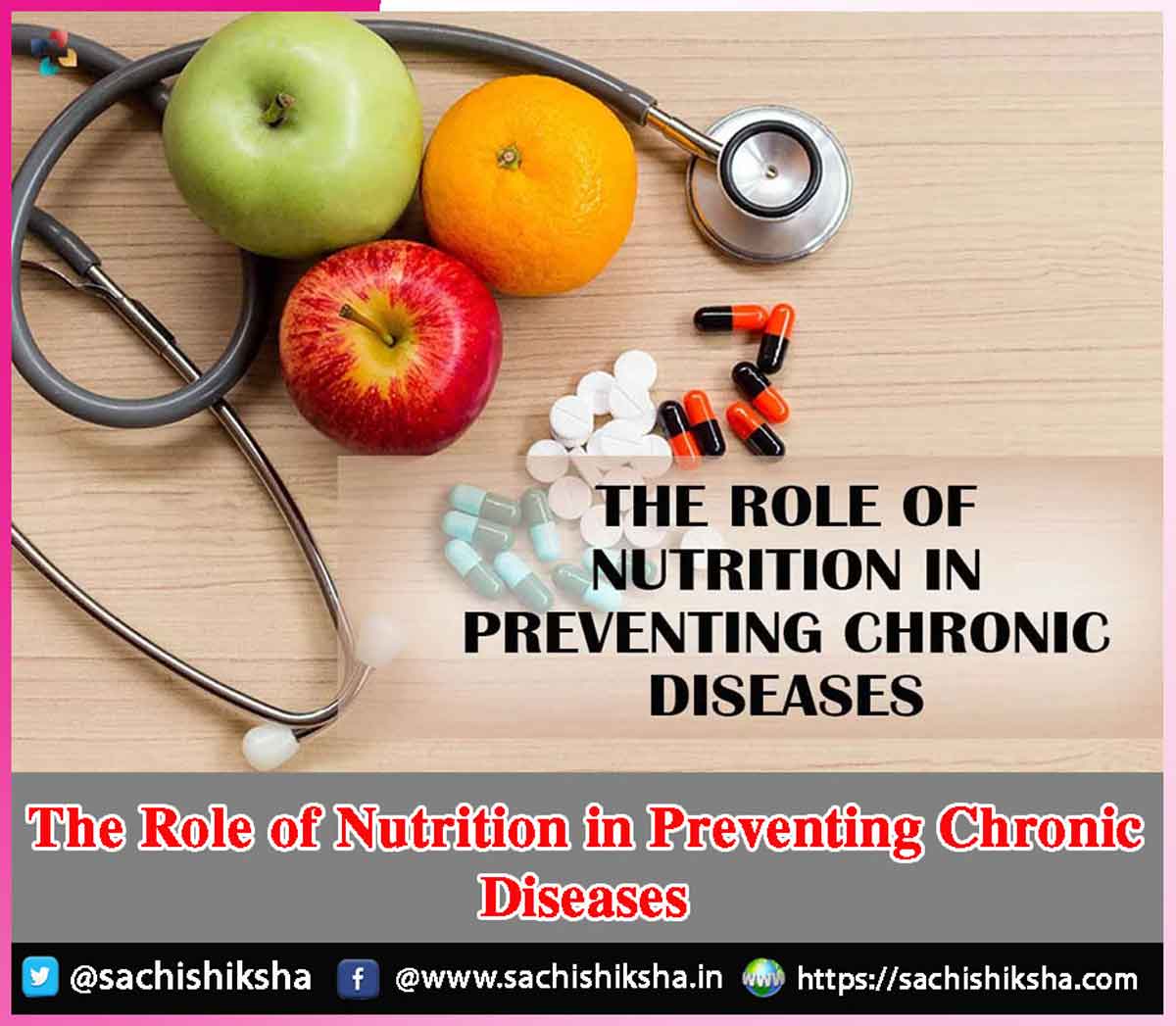The Role of Nutrition in Preventing Chronic Diseases
Introduction: Nutrition plays a pivotal role in maintaining overall health and preventing chronic diseases. Chronic diseases, including heart disease, diabetes, and certain cancers, are long-term conditions that often develop due to a combination of genetic, environmental, and lifestyle factors. Among these, dietary habits are a significant modifiable risk factor. This essay will explore the relationship between nutrition and chronic disease prevention, examining the impact of various nutrients, dietary patterns, and lifestyle choices.
Table of Contents
Understanding Chronic Diseases
Chronic diseases are typically characterized by their prolonged duration and slow progression. They often result from a combination of genetic predispositions and lifestyle choices. The most common chronic diseases include cardiovascular disease, type 2 diabetes, obesity, and some types of cancer. These conditions can have a significant impact on quality of life and are leading causes of morbidity and mortality globally
The Impact of Nutrition on Chronic Disease
Nutrition influences the risk of developing chronic diseases through several mechanisms, including the regulation of body weight, inflammation, and oxidative stress. The following sections delve into how specific nutrients and dietary patterns can contribute to disease prevention:
Cardiovascular Diseases:
Cardiovascular diseases (CVD) encompass conditions like coronary artery disease, hypertension, and stroke. Diet plays a crucial role in managing and preventing CVD.
- Fats: The type of fat consumed is essential for heart health. Saturated fats, found in red meat and full-fat dairy products, can raise low-density lipoprotein (LDL) cholesterol levels, increasing CVD risk. Conversely, unsaturated fats, particularly omega-3 fatty acids, flaxseeds, and walnuts, can reduce inflammation and lower triglyceride levels.
- Fiber: Dietary fiber found in fruits, vegetables, whole grains, and legumes, helps lower cholesterol levels and regulate blood pressure. Soluble fiber, in particular, binds with cholesterol in the digestive tract, preventing its absorption.
- Antioxidants: Fruits and vegetables are rich in vitamins and antioxidants like vitamin C, vitamin E, and flavonoids. These compounds help reduce oxidative stress and inflammation, which are involved in the development of atherosclerosis (hardening of the arteries).
Type 2 Diabetes:
Type 2 diabetes is characterized by insulin resistance and high blood sugar levels. Nutritional interventions are fundamental in both preventing and managing diabetes.
- Carbohydrates: The type and quantity of carbohydrates consumed affect blood sugar levels. Low glycaemic index (GI) foods, such as whole grains and legumes, are preferable as they cause a slower, more gradual increase in blood glucose levels compared to high GI foods like white bread and sugary snacks.
- Protein: Adequate protein intake helps maintain muscle mass and supports metabolic health. Lean sources of protein, such as poultry and plant-based proteins like beans and tofu, are beneficial for blood sugar control.
- Fat: Healthy fats, such as those found in avocados, nuts, and seeds, can improve insulin sensitivity and support overall metabolic health. Reducing intake of trans fats and saturated fats can help in managing diabetes and reducing cardiovascular risks associated with the disease.
Obesity:
Obesity is a major risk factor for several chronic diseases, including diabetes, heart disease, and certain cancers. Nutrition is central to both the prevention and treatment of obesity.
- Caloric Balance: Maintaining a healthy weight requires a balance between calorie intake and expenditure. Consuming nutrient-dense foods that are low in calories but high in vitamins, minerals, and fiber can help manage weight effectively.
- Macronutrient Distribution: A balanced intake of carbohydrates, proteins, and fats supports overall health and helps regulate appetite. High-protein diets can aid in weight loss by promoting satiety and preserving muscle mass during weight loss.
- Meal Timing and Frequency: Regular meal patterns and mindful eating can prevent overeating and improve metabolic health. Skipping meals or consuming large amounts of food late at night can disrupt metabolic processes and contribute to weight gain.
Cancer:
Certain dietary patterns and nutrients have been associated with a reduced risk of various cancers.
- Fruits and Vegetables: High consumption of fruits and vegetables provides essential vitamins, minerals, and antioxidants that protect cells from damage and may inhibit cancer cell growth. Cruciferous vegetables, such as broccoli, cauliflower, and Brussels sprouts, contain compounds that have been shown to have anti-cancer properties.
- Fiber: High-fiber diets are associated with a lower risk of colorectal cancer. Fiber promotes healthy digestion and may help in the elimination of carcinogens from the digestive tract.
- Alcohol and Red Meat: Alcohol consumption and intake of red and processed meats have been linked to an increased risk of several cancers, including breast, colorectal, and prostate cancers. Avoiding consumption of alcohol and processed meats lower cancer risk.
Dietary Patterns for Disease Prevention
Certain dietary patterns have been shown to be effective in preventing chronic diseases:
- Mediterranean Diet: Characterized by high consumption of fruits, vegetables, whole grains and olive oil, and low intake of processed foods, the Mediterranean diet is associated with reduced risk of cardiovascular disease, diabetes, and cancer.
- DASH Die: The Dietary Approaches to Stop Hypertension (DASH) diet emphasizes fruits, vegetables, whole grains, and lean proteins while reducing sodium and saturated fats. This diet is effective in managing blood pressure and reducing the risk of heart disease.
- Plant-Based Diets: Diets that focus on plant foods, such as vegan and vegetarian diets, can reduce the risk of chronic diseases due to their high content of fiber, vitamins, and phytochemicals while being low in unhealthy fats and processed meats.
Practical Recommendations
To leverage nutrition for chronic disease prevention, individuals should focus on:
Incorporating a Variety of Fruits and Vegetables: Aim for a colourful plate to ensure a wide range of nutrients and antioxidants.
- Choosing Whole Grains to increase fiber intake and improve metabolic health.
- Opting for Lean Proteins and incorporating plant-based protein sources.
- Limiting Intake of Added Sugars and Unhealthy Fats, particularly trans fats and excessive saturated fats.
- Maintaining Portion Control and practicing mindful eating to support healthy weight management.
Conclusion
Nutrition is a cornerstone in the prevention and management of chronic diseases. Through a balanced diet rich in essential nutrients, individuals can reduce their risk of developing conditions such as cardiovascular disease, type 2 diabetes, obesity, and cancer. Adopting dietary patterns that emphasize whole, nutrient-dense foods and minimizing the intake of harmful substances is essential for long-term health and well-being. By making informed dietary choices and adopting healthy eating habits, individuals can significantly impact their health outcomes and enhance their quality of life.















































